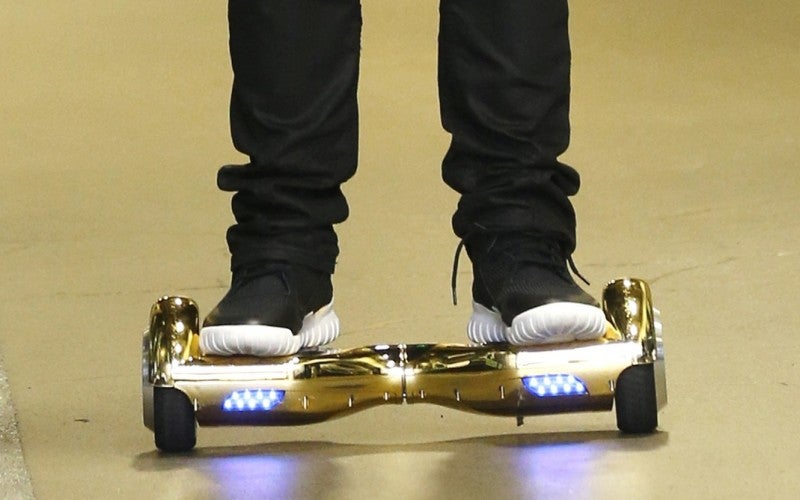Wildwood considers banning hoverboards on boardwalk

(AP Photo/Stephen Brashear)
Wildwood officials are considering banning hoverboards on the boardwalk.
Officials fear the insurance liability and the risk of fire on the wooden span.
Mayor Ernie Troiano Jr. tells The Press of Atlantic City people sue “at the drop of a dime” and nobody is responsible for their actions.
Commissioner Anthony Leonetti is worried that overheated hoverboard batteries could burn down the boardwalk.
The town’s commission is expected to consider an ordinance this week.
A hoverboard, a cross between a skateboard and a segway, quickly became a trend last year, but at a cost.
Authorities have reported numerous fires and emergency room visits due to falls. Airlines have banned the toy, Amazon.com is no longer selling most brands, and the U.S. Consumer Product Safety Commission is now investigating.
Experts say the fire culprit is a hoverboard’s rechargeable lithium-ion batteries, not the device itself.
“If there is an inherent defect in the cell, it will go off at some point,” Jay Whitacre, a Materials Science & Engineering professor at Carnegie Mellon University, told Wired. “Small defects in the manufacturing or materials stream lead to the plus/minus sides of the batteries being shorted with each other after a small amount of use. When this happens, especially when the batteries are charged, a lot of heat is generated inside the cells and this leads to electrolyte boiling, the rupture of the cell casing, and then a significant fire.”
Whitacre says fires from lithium-ion batteries are hard to contain because of the highly flammable electrolytes inside.
The batteries, used in a wide range of consumer products, have been responsible for fires and explosions in homes, offices, cars, and airplanes.
—————————————————————–
The Associated Press contributed to this report.
WHYY is your source for fact-based, in-depth journalism and information. As a nonprofit organization, we rely on financial support from readers like you. Please give today.

